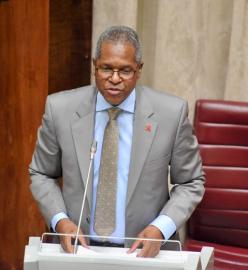In the Eastern Cape, a heartbreaking tragedy has unfolded with the loss of 20 young initiates during traditional circumcision ceremonies. This shocking news has sent ripples of grief and concern throughout the nation, prompting immediate action from government officials and community leaders alike.
As someone who grew up hearing stories about these important cultural rituals, I can’t help but feel a deep sadness for the families affected. It’s as if a celebration of life and growth has turned into a time of mourning and reflection.
The Role of CoGTA and Minister Hlabisa’s Emergency Visit
In response to this crisis, Minister Velenkosini Hlabisa of the Department of Cooperative Governance and Traditional Affairs (CoGTA) quickly organized an emergency meeting. The purpose? To address the situation head-on and ensure that those responsible are held accountable.
I imagine Minister Hlabisa must have felt a heavy weight on his shoulders as he prepared for this crucial visit. It’s not every day that a government official has to confront such a sensitive and emotionally charged issue.
Shockwaves Across the Nation
The news of these deaths has hit South Africans hard. Social media is buzzing with messages of condolence and calls for action. Families are grieving, and communities are struggling to make sense of this loss.
I remember when I first heard about the tragedy, I felt a mix of shock and disbelief. How could something meant to be a celebration of life end so tragically? It’s a question that I’m sure many South Africans are grappling with right now.
The Importance of Safeguarding Ulwaluko
Ulwaluko, the traditional male circumcision practice, holds deep cultural significance for the Xhosa people. It’s seen as a crucial step in a boy’s journey to becoming a responsible man in society.
Growing up, I often heard my Xhosa friends speak about Ulwaluko with a mix of excitement and reverence. It’s clear that this tradition is about much more than just a physical change – it’s about personal growth, community, and cultural identity.
Challenges Facing the Tradition
Recently, there have been concerning deviations from the norms and standards outlined in the Initiation Act. This non-compliance is putting lives at risk and undermining the very essence of the cultural practice.
It’s heartbreaking to think that a tradition meant to empower young men is being tarnished by negligence and malpractice. As an outsider, I can only imagine how frustrating and painful this must be for those who hold Ulwaluko dear.
Focus on the Amathole District
The Amathole District has been particularly hard-hit, reporting the highest number of initiation-related deaths. Minister Hlabisa has been meeting with local officials, initiation forums, and community members to address the crisis at its epicenter.
I can picture these meetings – tense, emotional, but hopefully productive. It’s in times like these that leadership and community cooperation are most crucial.
A National Disaster and Call for Change
This crisis is being framed as a national disaster, and rightly so. The loss of young lives affects us all, regardless of our cultural background. There’s an urgent need for drastic measures to protect the youth and preserve this important tradition.
As a South African, even though I’m not Xhosa, I feel a sense of responsibility to support efforts to make Ulwaluko safer. After all, these are our country’s future leaders we’re talking about.
Collective Efforts to Safeguard Tradition
Minister Hlabisa has called for cooperation from all sectors of society to prevent abuse and exploitation. The goal is to develop strategies that ensure the cultural practice remains safe and dignified.
I find myself wondering how I can contribute to this effort. Perhaps it starts with educating ourselves and others about the importance of respecting and protecting cultural practices.
Restoring Safety and Dignity
As we move forward, there’s a collective commitment to honoring the lives lost by safeguarding Ulwaluko. The challenge now is to find a way to preserve this important tradition while ensuring it aligns with the fundamental right to life and well-being.
It’s a delicate balance, but one that’s crucial for the future of South African culture and the safety of our youth. Here’s hoping that through open dialogue, respect, and a commitment to change, we can make Ulwaluko safe for generations to come.

